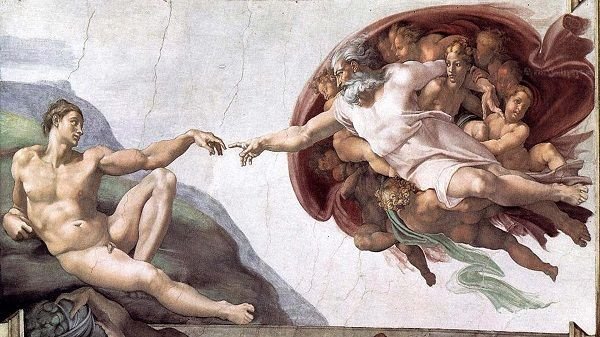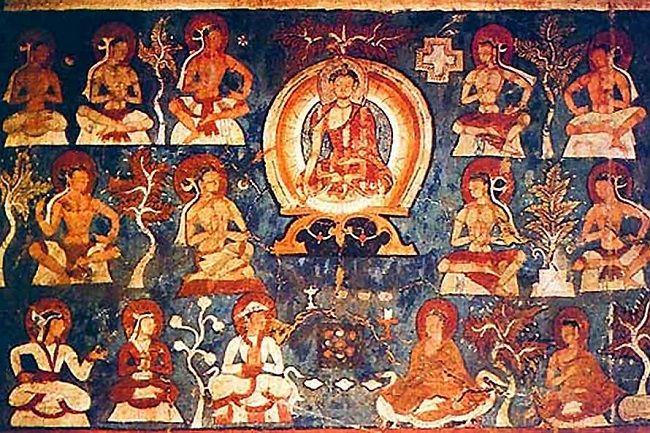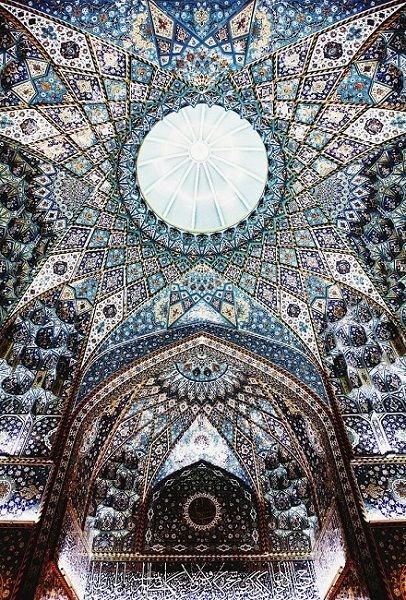Philosophy and religion
Ontology
Traditionally, ontology deals with issues related to what exists or can be said to exist; how they can be grouped together in a hierarchy. The term "philosophy" has Greek origins ("phylos " - I love, "sofia" - wisdom). Philosophy is a form of culture such as science, technology, art, religion. Ancient Greek philosophers see the wisdom or the knowledge to live and die as the main goal of philosophy. Thinking connects this goal with a universally pervasive Genesis, which is the Home, principle, essence of the world. On the other hand, the meaning of philosophy can be sought in the truth of being. The philosophy of being is called ontology or metaphysics. In ancient Greek ontology, being is conceived as a logos. The European Middle Ages perceives being as God, and New Time as a substance (root cause), and Buddhism develops a typical Eastern metaphysics of the mystic.

In its nature, religion is a form of public consciousness, a system of views and customs based on the belief in supernatural powers. It is also a set of moral norms, institutes and rituals. The essence of the religious system is a complex subject that is the subject of many discussions and disciplines. In the process of development, most religions have gone through many stages within separate cultures. Often the word "religion" is used above all with the meaning of "organized religion" - an organization of people who support the confession of a particular religion. The word "religion" originates from the Latin religio, which means "honor, awe to the gods." In 19-20, comparative religion classifies views in philosophical categories called "world religions." Some scholars believe that not all religions are separated from each other by mutually exclusive philosophies. They believe that there is little point in coping on certain practices with a given philosophy and even defining them as religious rather than cultural, political or societal.
The term "God"
God is the higher power that looks at us from the top, counts our sins, sends us trials, protects us. God is omniscient and omnipotent, there is nothing hidden about him. Christian doctrine says that man is extreme and imperfect and is far from always right and moral. Supreme Truth, however, does not depend on man, it is God and the world created by Him. Therefore, seeing the Truth of each individual depends on his moral state: the more he is deepened in sin, the more distorted he sees the world, and less wants to know about the Truth. Truth is God's real existence - He is the First and the Last, Life and Death, Light and Shadow. No matter what name God bears, it is the same everywhere in the world.
The last 2,000 years of human history are deeply defined by Christianity. The Western world view (the European) is derived from the Christian doctrine of God. Here are born the ideas of freedom, equality, fraternity. In summary, God is knowledge of the vision of Light, Good, and Harmony.
Religious faith
Religious belief refers to the mental state associated with a supernatural, sacred and divine phenomenon. Religions unite large groups of people and provide the paths that each of them can live in their lives in truth and purpose. Religions are extended families. They extend the boundaries of the family to the tribe or to the clan, and many of them even broaden the boundaries of the tribe, creating a family of all people on earth as the Christians would say, or turning them into a united community, as they would say Muslims. Religious faith creates a code of conduct (such as ethics or law). This gives people the chance to live confidently. Belief is precisely that - the belief that what is affirmed by religion is reliable. And confidence, in turn, strengthens faith. This means that people can recognize friends from enemies, and they can misunderstood someone who suits them or not. A value and moral system is built. Religions invariably include a system of beliefs, but not all beliefs are religions. Often, religious supporters distinguish religious beliefs from superstition. Though both religion and superstition look for meaning in otherwise random and chaotic events.

Types of Contemporary Religious Teachings
- Manichaeism: This is a Gnostic Syncretic Paralegulous Movement, named after its founder Mani (216 / 217-277). Mani was born in Babylonia, originated from an Iranian family. New religious views begin to preach after he has appeared to him several times as an angel named al-Taum (twin, double). Mani declares himself a prophet and ambassador to a new religion, which, as he thinks, is universal. It connects the Christian tradition with itself, proclaimed the Spirit of Comforter (Paraclete) promised to the people of Jesus Christ. At first, many have perceived Mani as a prophet, but later declared him a heretic, both in the Christian and the Zoroastrian circles. He was sentenced to death. As a result of the special missions, the Maniheistry spreads in Rome, Gaul, in the lands of Spain, Syria, Palestine. Since the beginning of the 7th century, the Manihean communities have been localized in the Middle East as well as in Central Asia. In the middle of the eighth century Manichaeanism was considered an official religion of the Uyghur Empire. In Central Asia, it has a longer presence (until the 13th century) and in China esoteric Manichaean groups existed until the 17th century.

Islam: The historical beginning of Islam was established in the sixth century on the Arabian Peninsula and relates to the activity of the Prophet Muhammad (Muhammad). According to its principles, Islam is a strictly monotheistic religion. Muslims believe that in the beginning people had one religion and one right God, but later they have begun controversy among themselves, and the paths to the right God have multiplied. Then God gives the nations different laws to test every nation through the law given to it; after these trials all should return to the worship of one God. Islam employs about 1.3 billion people. In practice, there are almost everyone whose mother tongue is Arabic, as well as most Turkic and wandering speakers. The majority of Muslims live in Southwest Asia, in the northern countries of Africa, and a small percentage live in European regions. In most countries, Islam is spread in the form of Sunnis. The sacred story of believers in Allah begins with the prophet Abraham. It is through him that the unity of Allah is strengthened with the believers in Him. From this point of view, Islam is identified as an Arab religion. On a Semitic knee, the Arabs consider themselves the descendants of Ishmael, the son of Abraham.
Hinduism: A religion that is believed by the population of most of India. It encompasses a wide range of different directions, including yogic tradition as well as many rules of daily behavior based on the idea of karma. Hinduism has gradually formed on the basis of different traditions and has no single founder. Hinduism is defined as "the oldest modern religion" or "the oldest modern main tradition". In demographic terms, this is the third most common religion in the world after Christianity and Islam. At the base of Hinduism there are many religious texts, which are divided into two groups - shrubs and murmurs. They address issues of theology, philosophy and mythology and contain instructions on the practice of dharma (religious life). Hinduism is, in its essence, a system of local beliefs. He is polytheistic. The chief deities are Brahma, Vishnu and Shiva, who are embodied in the triple image of Trimurti. The basis of the Hindu world view is the doctrine of the four purposes of human life: dagger, artha, dharma and moksa. Basic principles of Hinduism are the terms karma, dharma and samsara. Hinduism maintains the caste division of Indian society.
Neopaganism: The name comes from Latin and means "resident", "citizen". It is a common term that is used with heterogeneous application to various Western spiritual or religious beliefs and practices of natural or polytheistic religions as opposed to the Arabic. Latin "raganismus" means a set of local customs and beliefs worshiping local deities. Modern Paganism uses ancient pagan ideas to build a new and modern ideology. The need for this ideology emerged in the 1960s and 1970s, along with the development of the hippie movement. Paganism aims to answer the problems of modern society and the modern man within it. With the help of the old religions, he explains the equality and freedom of man and his place in the world. Paganism raises Nature in principle and proclaims the Basic Law as fundamental. Particular attention is paid to goddesses and their role in the universe. The Goddess, who has 3 images - a virgin, a mother and an old woman, is the supreme deity.

- Voodoo: Today, this religion has at least 50 million followers worldwide. Voodoo is the belief of the people in the once-Dahomey kingdom, which occupied part of today's Togo, Benin and Nigeria. The name of religion derives from "water", which in West African language means spirit or god. Voodoo was carried by the black slaves to Haiti in the seventeenth century. In these places it is practiced today. Of all modern religions voodoo is the most misunderstood. The main thing to relate to is superstition, black magic, divine music, dancing, trance and demonstrating supernatural powers. Another thing that connects voodoo is the images of snakes, skulls and crossbones. In New Orleans, USA, 15% of the population practiced voodoo.Voodoo determines the way of thinking and behavior. Voudon means the power and power that is always tangible and the creator of all material things. In other words, it is all the energy and spirituality of the universe. In quite a changed form, we can also encounter voodoo in South Africa. Today's religion is French, Spanish and Indian.
The spirits of voodoo are called Loa. They manage world affairs, family relationships, harvest, love, happiness and health. To keep them happy, people sacrifice them for various items, foods and drinks. Voodoo is a religion with rich traditions. A mighty supreme god, who controls the lesser gods (called orchids), is considered. Deity contacts with believers through dreams, songs and objects. Unique to voodoo is the belief that the dead can be revived after being buried. That's how a zombie gets. The zombie does not have its own will, but is under the control of the living, like a slave.
- The Essence of Theology
The word "theology" has Greek origin ("theos" - God and "logos" - word). It is interpreted as theology. In its essence, it represents a set of religious doctrines on the essence of God's word and doctrine, which is based on the texts adopted for sacred revelation. The precondition for the existence of theology is the existence of sufficiently developed philosophical systems. If we broaden the concept, theology can be defined as a science that studies religious themes. In ancient Greece, "theology" refers to the singing and telling of stories about the gods. Typically, in classical Greek literature, the term "theology" is used to mean a "talk about gods and cosmology." Aristotle divides the theoretical philosophy of mathematics, physics and theology, the theology itself referring generally to the modern term "metaphysics", which, according to Aristotle, includes a discussion of the nature of the divine. Thus, based on ancient Greek literature, the Latin writer Varon divides this kind of discussion into three forms:
- metaphysical (referring to the gods of Greek mythology)
- rational (philosophical analysis of gods and cosmology)
- civil (referring to customs and responsibilities in religious life)
Most commonly, under this word is Christian theology. Sometimes theology is seen as a subdivision of philosophy. If we look at the term in a more general sense, it refers to the study of many religious questions. The Slavic translation of the word refers to Orthodox terminology and subject matter. In its essence, theology and theology are interchangeable. The term begins to be used by Christian writers. It occurs in some bible manuscripts in the "Revelation of John the Theologian". There is a difference in the meaning of the root "logos" in the sense not of "reason" but of "word" and "knowledge".
In the modern sense, "theology" or "theology" refers to both a discussion of the nature of God or the gods or of a religious theme. In a narrow sense, the term is also used for relations between different religions, although this portion of knowledge is usually referred to as "comparative religion".
Philosophy and religion
Philosophy and religion are interrelated, they explain one another. Philosophy explains religion, and religion in its essence represents an independent philosophy. Philosophy explains Trinitarian Doctrine: There is one God in the universe (monotheism, but this nature is shared by Three Persons, one is the God's Oasis, but three are their Personal Characteristics.) "Father" is the Beginning Beginning of everything else exists, the "Son" is the Wisdom, Principle and Word of the Father, and "Spirit" is the Life-giving Power of the Unified God.
Great post! Consider to participate to one of the following contests!
Below is a list of some contests/giveaways on Steemit that you should definitely participate in.
The list isn't in any particular order and it isn't exhaustive.
1. Meme Challenge by@fibra59 / https://steewit.com/@fibra59
A entertaining and popular contest to tickle your funny bones, it is sponsored by several Steemians and it'll certainly put you under the meme spotlight.
Tag - memechallenge
2. Open Mic Week byluzcypher / https://steewit.com/@luzcypher / pfunk / https://steewit.com/pfunk
This contest will allow you to get your musical juices flowing. Make a musical video and submit it now.
Tag - openmic
3. Wild and Strange Contest/Steem-Pocalypse bypapa-pepper / https://steewit.com/@papa-pepper
Two very interesting contests running into their 5th and 3rd seasons respectively, you don't want to miss grabbing a spot on the next edition.
Tag - wildnstrange / steem-pocalypse
4. STEEM Cup Series/Steemit Scramble byats-david / https://steewit.com/@ats-david
If you are a sport enthusiast or otherwise, don't miss out on participating in these sporting event related contests.
Check out the latest contest here.
5. Art Challenge byaksinya / https://steewit.com/@aksinya
You don't need to be an artist to join. Just interpret an artwork that is posted in your own words.
Tag - artchallenge
Beautiful arrival post great
Thanks
Hey @godflesh, great post! I enjoyed your content. Keep up the good work! It's always nice to see good content here on Steemit! :)
Thank you very much :)
This is a well written article, i enjoyed it. Thanks a lot.
You are welcome :)
Mysteries are the proofs to errors in some religions and philosophies .
I agree with you :)
Saddened to read this, re: Mystery... but such is the shortcoming of philosophy/the tyranny of the rational mind, and why I had to turn my back on it.
This post has received gratitude of 11.61% from @appreciator courtesy of @godflesh!
To hear the speech version of this post click the play image.

Brought to you by @tts. If you find it useful please consider upvote this reply.
I learned something new from reading this, and I thank you for that. But for me, it doesn't matter what religion are you, as long as you are a good person and not harming others.
Rationality of religion is the philosophical investigation of the significance and nature of religion. It incorporates the investigations of religious ideas, convictions, terms, contentions, and practices of religious followers. The extent of a great part of the work done in theory of religion has been restricted to the different mystical religions. Later work frequently includes a more extensive, more worldwide approach, contemplating both mystical and non-mystical religious customs. The scope of those occupied with the field of rationality of religion is wide and various and incorporates scholars from the investigative and mainland conventions, Eastern and Western masterminds, religious devotees and freethinkers, doubters and agnostics. Rationality of religion draws on the greater part of the real regions of logic and also other pertinent fields, including religious philosophy, history, humanism, brain research, and the regular sciences.